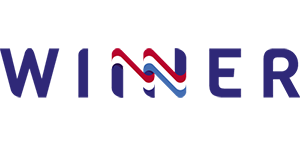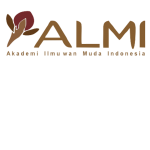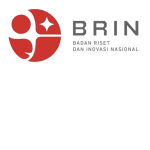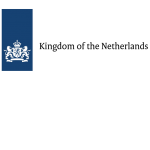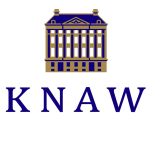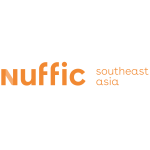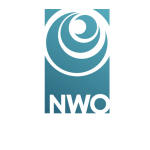Organisers
The Indonesian Young Academy of Science (ALMI) is an Organization for Indonesian prominent young scientists.
ALMI was established as an autonomous body (badan otonom) of Indonesian Academy of Science (AIPI) and under the auspices of Indonesian Law (Undang-Undang) No.8/1990 about AIPI and Presidential Decree ( Keputusan Presiden) RI No. 9/2016-Revisi UU tentang AIPI ALMI aims to promote scientific culture of excellence and the advancement of science in Indonesia, with four mission value namely (1) Promoting the advancement of frontier science through interdisciplinary collaboration among Indonesian Young Scientists (2) promoting scientific temper and scientific culture of excellence among Indonesian Young Generation (3) encouraging the role of science in process of public policy making, and (4) be part of global young academy movement.
On September 1, 2021, the National Research and Innovation Agency (BRIN) began a transition period by merging research bodies in Indonesia including Agency for the Assessment and Application of Technology (BPPT), Indonesian Institute of Sciences (LIPI), National Nuclear Energy Agency (BATAN) and National Institute of Aeronautics and Space (LAPAN) as well as R&D institutions in Indonesia. Based on Presidential Regulation of the Republic of Indonesia number 78 year 2021, BRIN is responsible for research, development, formulation and determination of research policies, assessment and application, as well as integrated inventions and innovations.
Under the coordination Chairman of BRIN Dr. Laksana Tri Handoko, BRIN will continue to increase the productivity of inventions and innovations for global competitiveness in the field of nuclear power, aviation and space, assessment and application of technology, life sciences, earth sciences, engineering sciences, social sciences and humanities, marine and fisheries, archeology, meteorology, religion, language and literature, environmental and forestry, Governance and public welfare, agriculture and animal husbandry, and also in the field of health.
Embassy of the Kingdom of the Netherlands in Jakarta. The Netherlands Ministry of Foreign Affairs has more than 150 embassies, consulates and permanent representations to international organizations all over the world. Besides, there are about 360 honorary consulates with limited competences.
The Royal Netherlands Academy of Arts and Sciences was founded in 1808 as an advisory body to the Dutch Government – a role that it continues to play today.
The Academy derives its authority from the quality of its members, who represent the full spectrum of scientific and scholarly endeavour and are selected on the basis of their achievements. It is also responsible for fourteen internationally renowned institutes whose research and collections put them in the vanguard of Dutch science and scholarship.
As the forum, conscience, and voice of the arts and sciences in the Netherlands, the Academy promotes quality in science and scholarship and strives to ensure that Dutch scholars and scientists contribute to cultural, social and economic progress. As a research organisation, the Academy is responsible for a group of outstanding national research institutes. It promotes innovation and knowledge valorisation within these institutes and encourages them to cooperate with one another and with university research groups.
Since 1995, the Academy works with Indonesia in the Scientific Programme Indonesia – Netherlands (SPIN) which capitalises on existing networks between the two countries. It allows Indonesia and the Netherlands to take advantage of the scientific, human, natural and other resources available in both countries and to maintain and set up new research networks. The most recent, and for the time being, last funding programme under SPIN is ANGIN (Anticipation Grants Indonesia – the Netherlands. https://opensciencemeeting.org/funding-opportunities/
Nuffic Southeast Asia is a non-profit organisation representing the Dutch knowledge sector in the Southeast Asia region.
In the past and present, our office has been the official representative for all information and activities concerning Dutch knowledge sector in Indonesia. We initiate and facilitate institutional cooperation between Indonesia and Dutch knowledge institutions and have run a variety of programmes and projects in support of a mutually beneficial knowledge relationship between the two countries.
We are supported by the Dutch Ministry of Education, Culture and Science. Our team delivers a full range of services connecting the Dutch knowledge sector with opportunities in Indonesia.
We know and understand the education systems of both countries and have profound knowledge of the Indonesian context. We excel in initiating and facilitating institutional cooperation between Indonesian and Dutch knowledge institutions, managing projects, stakeholder engagement, event organizing and implementing scholarship programs.
In order to support the Dutch knowledge sector, we closely collaborate with the Embassy of the Kingdom of the Netherlands in Jakarta and a broad range of Dutch and Indonesian education institutions, as well as with a variety of relevant Indonesian government ministries, regional and local governments, research institutions, scholarship providers, international organisations and the business sector. Our extensive networks enable us to facilitate collaboration between academia, government and industry to build and sustain a successful knowledge economy.
Furthermore, as the key facilitator of the NL Alumni Network in Indonesia (up to 2022), we provide access to thousands of competent Indonesian professionals who studied in the Netherlands, to enhance the bilateral cooperation, knowledge exchange and trade relations between Indonesia and the Netherlands.
After 25 years of connecting Dutch knowledge in Indonesia, we are proud and honoured that starting this year Nuffic Neso Indonesia is transforming into Nuffic Southeast Asia, serving as a regional office to support the knowledge and education relationships between the Netherlands and Southeast Asia.
The Dutch Research Council (NWO) ensures quality and innovation in science and facilitates its impact on society. Its main task is to fund scientific research at public research institutions in the Netherlands, especially universities. NWO focuses on all scientific disciplines and fields of research. The funds are allocated by means of a national competition on the basis of quality and independent assessment and selection procedures. NWO plays several roles as a broad, national research organisation that actively contributes to various elements of national science and innovation policy.
